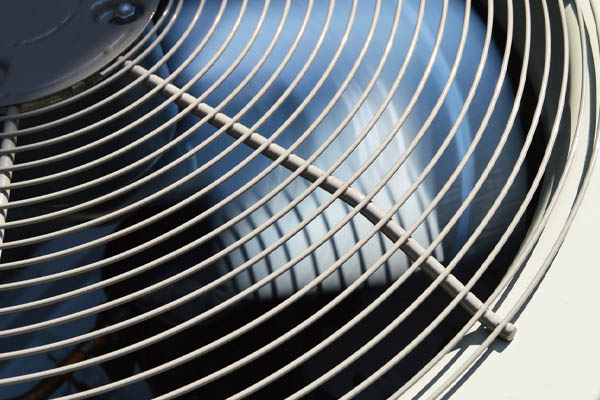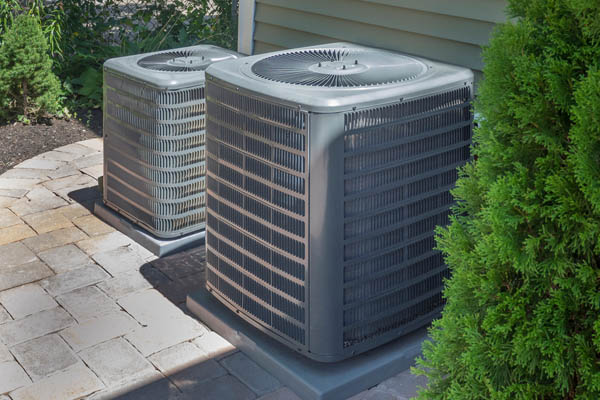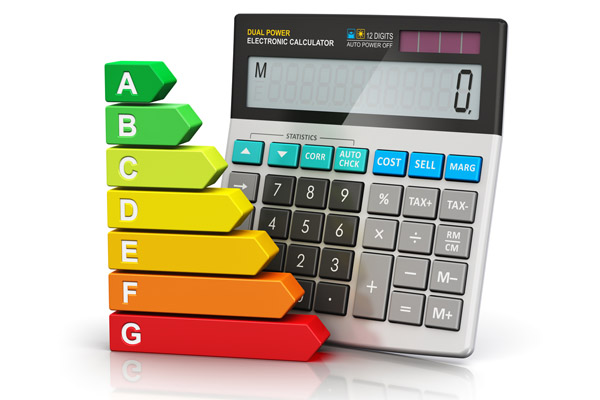Contents

Energy efficiency has become a key focus With continuous advancements in air conditioning technology. Variable-speed or modulating air conditioner designs are rapidly replacing traditional air conditioning units.
Modulating air conditioners are at the forefront of this evolution, offering a range of benefits, including intelligent energy consumption and consistent performance. These units are specifically engineered to regulate temperature precisely and effectively reduce humidity, enhancing comfort levels. In this article, we will provide valuable insights into the features and advantages of variable-speed air conditioning systems.
Standard AC Units vs. Modulating Air Conditioners
To fully comprehend and appreciate modulating technology, we must compare it to standard air conditioning units. Standard or traditional AC units have a compressor that operates at a fixed speed. When turned on, it runs at 100% capacity, and when turned off, it completely shuts down.
While this may not be problematic, such air conditioning systems consume a significant amount of energy. Starting cycles from scratch each time requires substantial power, resulting in higher energy bills.
Due to the fixed speed operation, standard units offer limited flexibility in adjusting heating and cooling temperatures. The airflow tends to be intense and extreme, leading to spaces that are too hot or too cold. This type of system also tends to create hot or cold spots within the area.
Related Article”: Where Are Those Air Conditioner Smells Coming From?
How Is A Modulating AC System Different?

Rather than operating constantly at full capacity, modulating units can be adjusted to run between 40% and 120% capacity. This results in a more moderate and consistent temperature in your home. Balanced temperatures enhance comfort and improve the overall airflow quality.
Modulating air conditioners utilize a compressor with variable speeds or capacity. You can adjust or modify the speed according to your specific heating and cooling requirements. By controlling the system’s output, you can also manage the amount of energy it consumes.
Fixed vs. Flexible Temperature Control
The phrase “Blast the AC” is commonly used to describe the operation of standard air conditioning units. When you turn them on, they blow air into the room at maximum speed, regardless of whether it is hot or cold air.
Aside from limited temperature options, the airflow from these standard AC units is often too strong. Certain areas in your home may experience insufficient airflow, resulting in uncomfortable hot or cold spots, particularly during nighttime.
To address these issues, HVAC modulating technology offers adjustable settings. Variable speed units are designed to adapt the airflow according to your home’s requirements. By reducing the intensity of the output, extreme temperatures and hot/cold spots are effectively eliminated.
Air conditioners with multiple speeds provide consistent and steady airflow. They can be customized to your preferred temperature settings. The ability to control their output allows you to match the cooling to your specific preferences.
However, other factors can influence airflow quality. It should be installed in accordance with your home’s specifications. For further information, consult a professional HVAC service provider.
Related Article: Top HVAC Installation Mistakes to Avoid
High vs. Low Humidity

Conventional air conditioning systems often require frequent on-and-off cycles, limiting their ability to remove moisture from the air adequately. As a result, higher humidity levels can be experienced in your home.
This increased humidity can make your home feel uncomfortably warm and damp. It reduces comfort and creates an environment that promotes mold growth. Mold can cause significant damage to your space and have adverse effects on your health.
Modulating or variable-speed air conditioners are specifically designed to combat mold growth. By operating with fewer cycles, these AC units effectively reduce moisture content in the air, resulting in lower humidity levels. This allows you to increase the temperature on the thermostat without concerns about clamminess or mold. Since modulating units run for longer periods, they have a greater ability to filter indoor air pollutants, leading to improved indoor air quality.
Most modulating designs ensure that humidity levels do not exceed 50%, as regulatory authorities recommend. In contrast, standard fixed-speed air conditioners can allow humidity to reach 60%. This higher humidity can create an ideal breeding ground for mold, potentially requiring the replacement of the unit. However, with proper maintenance, this issue can be avoided altogether.
Not all modulating air conditioners are the same, and not all models automatically reduce humidity. Consult a professional technician who can guide and discuss the available options.
Related Article: Air Conditioner Makes Loud Noise When Starting
Set vs. Smart Energy Consumption

If you have a standard cooling unit, high power consumption is normal, particularly during extreme weather, such as summer.
To reduce energy costs, homeowners often add extra insulation or find other ways to improve airflow. However, traditional air conditioning units offer no solution to escape from high energy bills apart from using them less frequently, which is not cost-effective.
Modulating air conditioners were specifically designed to address this issue. By incorporating variable speeds, these units offer varying outputs. When operating at 40% capacity, for example, they consume less power compared to running at 100%. This means that homeowners now have the choice to not only control the power used but also keep the air conditioner running without consuming excessive energy.
Maintenance Costs vs. Short Payback
Modulating air conditioners offer significant energy savings that can easily offset equipment, installation, and maintenance expenses. As a result, these units have a relatively short payback period.
While there are methods to reduce AC maintenance costs, standard models tend to accumulate higher expenses over time. Fixed-speed air conditioners endure more strain and pressure compared to variable-speed units. The frequent strain on the system increases the likelihood of HVAC repairs and part replacements.
Related Article: Major Consequences Of Not Replacing Your Home Air Filter
Conclusion
As energy efficiency continues to improve, the shift from standard air conditioners to modulating units is becoming inevitable. The advancements in inverter technology provide affordable heating and cooling solutions. By opting for variable speed designs, you can save on costs and effectively manage temperature and humidity, making your home greener, smarter, and more comfortable.
Related Article: What Does An Air Conditioner’s SEER Rating Actually Mean?
Call Wilcox Energy For All Of Your HVAC Requirements

Wilcox Energy offers superior heating and cooling services to homes and businesses along the shoreline towns in Connecticut. We hire the best-certified HVAC technicians who can deliver excellent HVAC installations, tune-ups, repairs, and replacements.
Wilcox Energy guarantees the most competitive and cost-effective HVAC service costs in the region. Our maintenance services can help improve your home comfort and increase energy efficiency while reducing your home HVAC costs. If you need HVAC repair or replacement, we can recommend the best option for your house while considering your budget. We back all of our HVAC work with a satisfaction guarantee. To schedule a service appointment, give Wilcox Energy a call today. We offer free, in-home estimates.
For more information about our HVAC services, be sure to contact Wilcox Energy. You can click here to contact us, or you can call us at (860) 399-6218 to find out more. We offer a full line of heating and cooling repairs, maintenance services, and installations. Click the link to view our service area.
